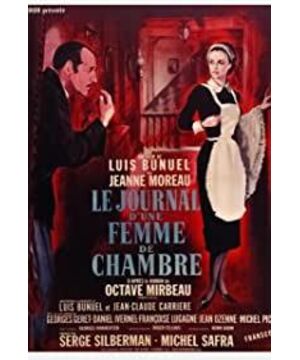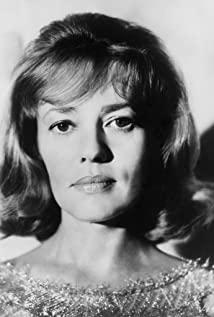Text / caesarphoenix
just finished watching the film, take a note, beware of spoilers.
1. Joseph throws off the carriage and rushes back to the woods, and there is an insertion montage between the two shots with the little girl bleeding and crawling on the snail's legs - a running wild boar and a rabbit, which is a typical metaphor montage. Joseph brutally raped and killed the little girl, like an animal in the forest, without humanity. At the same time, this group of inserted shots is not abrupt, and there may indeed be such animals in the woods.
2. The image of the maid Celestine in the film is quite interesting. On the one hand, she wanders among the many men in the French countryside - Montaire, the hostess's father, Joseph, and the colonel all have certain needs for her . The ubiquitous sexual thirst and eccentricities are the underlying background of this film.
The hostess who can't satisfy her husband is harsh and stingy, and her habit of being a lady from Paris also makes her unflattering among other maids.
But she is not pure and innocent. She has a strategy to deal with the male host, obey the hostess' father, and make good relations with the neighbors and keep a distance from Joseph. Her smile is beautiful but lacking in sincerity, she is shrewd and maintains her decent dignity.
Only when she learned that the little girl had died and was about to get on the train to leave this place of right and wrong chose to come back, and she could have a premonition that she would seek justice for this poor and helpless girl, and many details later explained this ( Joseph said that she rummaged through her closet, she seduced Joseph and asked him if he had raped and murdered the little girl, plucked the iron from the shoe and placed it where the incident happened, etc.).
But we have never been able to enter the heroine's heart, and the director has no intention of doing so, or he deliberately kept a distance and showed the story in the true face of life (even a lot of information about what the heroine did is learned from other people's mouths) , this is how we get limited information in our lives).
We can make our own judgments about her actions from start to finish, but her motives, what she's thinking at every moment, will forever remain a mystery.
She is a person who is beyond her time, a person who has justice in mind and understands the dangers of the world, but even perjury cannot punish the real murderer, and she is powerless to the gap caused by the times and classes. At the end of the film, when the colonel talks about changing her will (such a major event in her own interest), all she cares about is whether Joseph is punished, and the justice under her indifferent exterior is touching.
3. The male host, Montaire, is cowardly and incompetent, but pitiful and sympathetic. The scene of pulling the older maid to the barn to make love amid the sound of geese(?) is absurd and unbearable.
4. Joseph embraced a deformed ideal, a beast in human skin, but opened a cafe called the French Army. Political speculators, nationalists, rogue proletarians are perfectly embodied in him.
And when these blind people take to the streets, there will be no peace in the world. The dark clouds and lightning at the end of the film herald a greater disaster to come. The specific time of the French anti-Semitic movement was probably before World War II, in the early 1930s, when the ghost of Joseph went to Germany and turned into Hitler.
Here, nationalism = fascism.
In addition, this film does not try to tell a complete story. Like many great films, it gives people a deep sense of "disobedience". Justice has not been done, and evil is about to come.
In contrast, I still prefer "The Great Phantom" that I watched two days ago. Even if it is war, hostility, and patriotism, people still have the last dignity and dignity, and people are still worthy of respect. It doesn't really end in World War I, does it?
View more about Diary of a Chambermaid reviews











